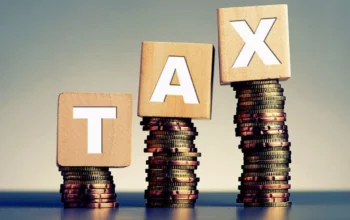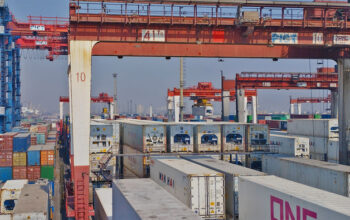By Staff Reporter
ISLAMABAD: The Federal Board of Revenue (FBR) is racing against time to bridge a Rs3 trillion fiscal gap over the next two months to meet a revised tax target of Rs12.332 trillion, after sluggish collections deepened risks of missing a critical benchmark renegotiated under an International Monetary Fund bailout program.
The FBR’s tax haul for the first 10 months of the fiscal year, which ends June 30, reached Rs9.3 trillion, according to provisional figures. That’s a 26.5% increase from the Rs7.35 trillion collected in the same period last year, reflecting robust growth in income tax and sales tax.
Yet, the tax authorities remain Rs3.032 trillion short of the revised target, requiring an unprecedented monthly average collection of Rs1.5 trillion in May and June to close the gap.
The original tax target, approved by parliament, was a loftier Rs12.97 trillion. But negotiations with the IMF under $7 billion Extended Fund Facility, led to a downward revision to Rs12.3 trillion. Even with the lower bar, the FBR’s shortfall against the original goal stands at Rs 3.67 trillion based on current collections, underscoring the scale of the fiscal challenge.
April, however, provided a glimmer of hope. The FBR collected Rs 840 billion, a 30% jump from Rs 650 billion in the same month last year. Income tax led the charge, soaring 44% to Rs 530 billion from Rs 240 billion, driven by improved compliance and higher withholding taxes. Sales tax, covering both domestic and import stages, grew 18% to Rs 310 billion from Rs 260 billion. Federal Excise Duty (FED) collections hit Rs 66 billion, while customs duties reached Rs 116 billion.
Tax officials said the 30% growth in April reflects aggressive push to broaden the tax base and plug leakages. But the final two months will test their capacity to sustain this momentum
For the first 10 months, income tax collections totaled Rs 4.48 trillion, up 28% from Rs 3.5 trillion a year earlier. Sales tax rose 28.5% to Rs 3.2 trillion from Rs 2.49 trillion. FED collections climbed 40% to Rs 630 billion from Rs 450 billion, while customs duties grew 16.9% to Rs 1.04 trillion from Rs 890 billion.
Despite these gains, the math is unforgiving. To hit the revised Rs 12.332 trillion target, the FBR must collect 32.3% of its annual goal in just 16.7% of the fiscal year. Historically, May and June see a spike in collections due to year-end filings and advance payments, but averaging Rs 1.5 trillion per month would shatter previous records.
Pakistan’s tax-to-GDP ratio, hovering around 10%, remains one of the lowest in the region, hampered by a narrow tax base, widespread evasion, and an informal economy that accounts for nearly 40% of GDP. The FBR has rolled out measures to boost compliance, including point-of-sale tracking for retailers and digital audits, but progress is slow. Political resistance to taxing powerful sectors like agriculture and real estate further complicates the situation.
Copyright © 2021 Independent Pakistan | All rights reserved




